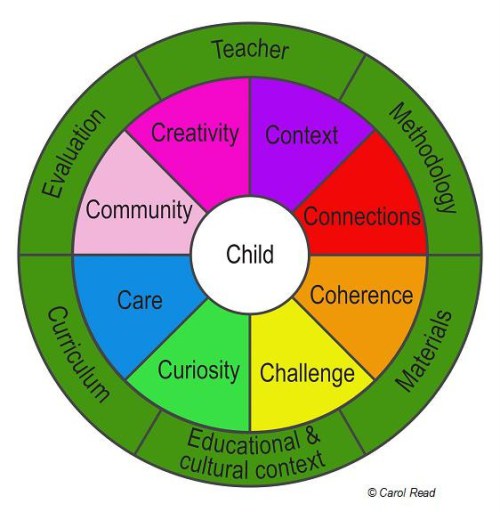Professional Development
17 novembro de 2017By Sandra Dylewska
The English teachers in the Infantil Bilingual Program were lucky to get the opportunity to participate in a professional development discussion group that was created and led by Liliane Salera Malta and Claudia Kawachi, through the PPGEL program at UFES. The PPGEL program is a linguistics program, and the research that is being conducted by the two is about teaching English to young learners.
Liliane is a Masters student and teaches English at regular schools and at UFES. She found that she could not teach young learners only with what was provided in UFES, since it is difficult to find education locally for teachers focused on teaching young learners English, so she decided to start this research to explore the bridge between teacher education and the practice of teaching young learners. Claudia is her supervising instructor.
The meetings were held at UFES, and we attended four which were held every second Monday. Brazilian teachers that teach English from other schools took part as well. In our second meeting we had a chance to listen to Professor Daniel Ferraz who wrote the book “Letramento Visual”. At the end of each session, we received certificates of completion.
Many topics were presented and discussed, both theoretical and practical. It was both comforting and energizing to exchange ideas and learn that others share similar experiences and struggles as we do as English teachers. A few topics that were covered included visual literacy (using and reading images in the English classroom), planning for classes, our qualifications for teaching, different models of best practice, and our sharing of experiences and resources.
Here are some important points taken from the meetings:
· Use whatever resources you can to make lessons stimulating
· There is no one way to speak English. There are many accents and slangs that exist in the world!
· Use images that are relevant to the lives of the students.
· Use English to make it relatable to the students (with music, videos, things they like, etc.)
· Set realistic objectives for students learning English. Age, ability, environment, and motivation affect the consideration for choosing the objectives.
· Create an environment of comfort and safety to learn new things and to make mistakes
· Understand that depending on the type of school and economic status of the students, they will have come into contact with English in different ways. The motivation to learn English may also be influenced by these factors.
· The classroom environment/relationship among the students needs to be considered.
· When designing your class, you can use the C-Wheel – community, creativity, context, connections, coherence, challenge, curiosity, and care.

· Try using non-competitive teamwork games: create trust and support within the group, and it can feel more comfortable to use the language in the school (balloon caterpillar!)
· The importance of circle time.
· The time available in the class needs to be considered, and lessons planned accordingly.
As foreign teachers in a bilingual program, our experiences have similarities and differences compared to other teachers teaching English here in Brazil. However, the knowledge shared within the meetings was much needed, as our profession and practice were acknowledged, and we were able to explore more into it. We were glad to have had such an opportunity, and would like to thank the school and the staff from UFES for organizing these meetings.
Participants in the program from Leonardo da Vinci: Dora Sodre, Dinah Ventanilla, Hilda Asare, Catherine Chase and myself.

